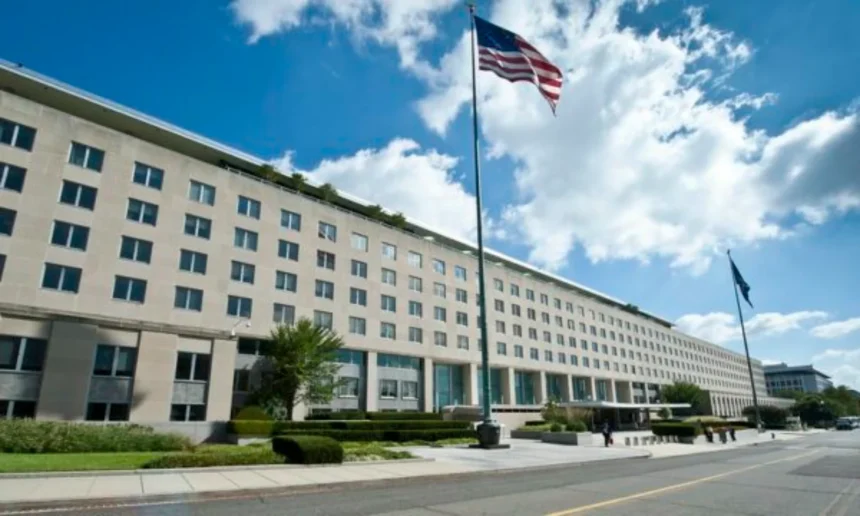The U.S. Department of State stated that it agrees with the European Union that Serbia has violated its commitments from the Brussels dialogue by approving the draft law on judicial jurisdiction in Kosovo and declaring Kosovo a “zone of special social protection.”
“We reiterate the U.S. government’s support for the territorial integrity and sovereignty of Kosovo throughout its territory,” a State Department spokesperson told Radio Free Europe.
Washington noted that the dialogue for normalizing relations between Kosovo and Serbia, mediated by the EU, has produced practical solutions that promote the rights of Kosovo’s citizens, including the Serbs living in northern Kosovo.
“This must be implemented. We call on Kosovo and Serbia to promptly fulfill the commitments made in the 2023 Agreement for the path toward normalizing relations, including the establishment of an association of municipalities with a Serbian majority,” said the State Department spokesperson.
A day earlier, the EU criticized Serbia for the law approved earlier in the week, which aims to pursue criminal offenses committed in the territory of Kosovo.
The law proposed by the Serbian government for approval by the Serbian Assembly on October 28 provides for trials for all crimes outlined in the country’s Penal Code, which have been committed since Kosovo declared independence in February 2008.
It was stated that this law would also apply to criminal proceedings initiated before its approval.
The head of the Office for Kosovo in the Serbian government, Petar Petković, said that the laws are a reaction to what he described as “the oppression of the Serbian people by the regime in Pristina and the lack of visible action from the EU mission, EULEX.”
He also stated that “if there were rule of law in Kosovo and if Serbs had any legal security,” then the law proposed by the government in Belgrade would not be necessary.
Kosovo has also criticized this Serbian legislation, with Kosovo’s Deputy Prime Minister, Besnik Bislimi, accusing Belgrade of violating dialogue agreements and infringing on sovereignty and territorial integrity with these draft laws.
Kosovo and Serbia reached agreements on the judiciary in 2015 and 2017 and agreed to implement them and integrate Kosovo Serbs into the justice institutions in Kosovo.
However, hundreds of members of the Serbian community in the north resigned from Kosovo’s institutions, including municipalities, police, courts, and prosecutor’s offices, in November 2022, in protest against several decisions by the Kosovo government.
During this year, the Kosovo government took several steps—such as removing the Serbian dinar from circulation and closing parallel Serbian structures—in an effort to extend its authority in the north as much as possible.
This prompted official Belgrade to announce in September that it would create a special prosecutor’s office for the territory of Kosovo, as a measure to protect the “vital national interests of the Serbian people” in Kosovo.
Meanwhile, Serbian President Aleksandar Vučić earlier this week presented several measures regarding Kosovo, stating that the special prosecutor’s office and special judicial chambers would “prosecute all those who participate in the persecution of the Serbian population” in Kosovo.







